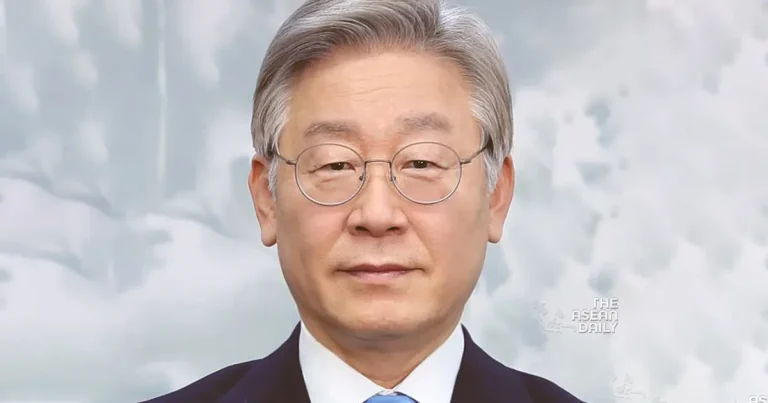11-4-2024 (SEOUL) Opposition leader Lee Jae-myung emerges as the dominant figure in South Korea’s political landscape following a resounding victory for his Democratic Party (DP) in the parliamentary elections. The triumph poses a significant challenge to President Yoon Suk-yeol, beset by controversies.
Lee’s ascent from a factory worker to a potent political force epitomizes his meteoric rise and resilience. Despite narrowly losing the 2022 presidential race to Yoon, Lee’s comeback underscores his determination for retribution.
According to the near-complete vote count reported by South Korean news agency Yonhap, Lee’s DP, along with its affiliates, is poised to bolster its majority in the National Assembly. This outcome positions Lee to exert considerable influence in shaping the country’s political landscape, with analysts speculating on his potential bid for the presidency in 2027.
Political consultant Bae Kang-hun highlights the significance of the DP’s parliamentary victory, suggesting it provides Lee with momentum towards a future presidential candidacy. The substantial presence of Lee’s allies among the DP’s new lawmakers is anticipated to facilitate his nomination within the party.
Initial conjecture hinted at the possibility of the DP securing a super-majority, which could have paved the way for Yoon’s impeachment. However, as Thursday’s tallies rolled in, it became evident that the opposition fell short of the required 200 seats.
Lee’s resurgence from the adversity of the 2022 election loss, compounded by a violent attack earlier in the year, underscores his determination to challenge Yoon’s governance through democratic means. Framing the parliamentary elections as a referendum on Yoon’s administration, Lee urged voters to decide the fate of the incumbent government.
The emergence of the Rebuilding Korea party, led by former justice minister Cho Kuk, signals widespread discontent among voters towards the main political factions. Political analyst Yum Seung-yul interprets the election results as a manifestation of public anger towards Yoon’s tenure, prompting speculation on potential changes in the president’s governance approach.
Throughout his political career, Lee has sought to draw a sharp contrast between his humble origins and Yoon’s privileged upbringing. Championing populist policies such as cash handouts and free healthcare, Lee aims to address socio-economic disparities prevalent in South Korean society.
However, critics accuse Lee of populism and fiscal imprudence, warning against the fiscal burden of his proposed schemes. Despite facing allegations of corruption and malfeasance, Lee maintains his innocence, attributing the charges to political motives.
Calls for Lee’s resignation within his own party have been overshadowed by the DP’s electoral triumph, consolidating his authority within the party ranks. Political commentator Yoo Jung-hoon suggests that Lee’s electoral success solidifies his path towards a future presidential bid, positioning him as a formidable figure in the South Korean political arena.




